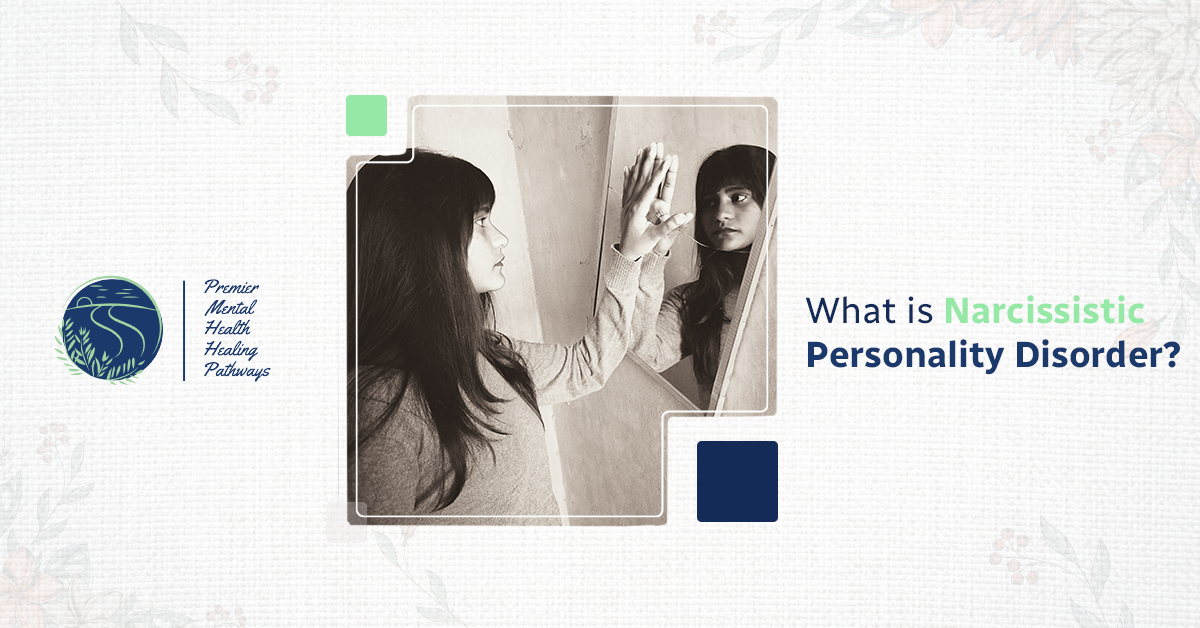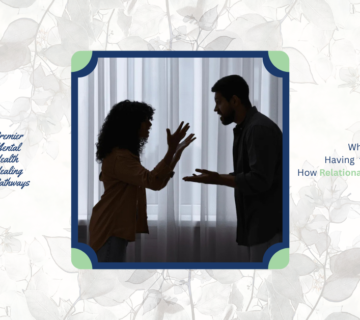Have you met someone who thinks they are the best at everything? They love praise but get angry when they fail. This could suggest Narcissistic Personality Disorder (NPD). So, what is NPD?
NPD is a mental health issue where people think they’re superior. Yet, they hide feelings of insecurity and doubt. They also struggle to understand others’ emotions. This makes relationships hard, leaving loved ones feeling ignored.
Let’s delve into what is narcissistic personality disorder. We’ll delve into its impact on individuals and their caring circles.
Premier Mental Health Healing Pathways offers support for personality disorders with care. Our team helps you understand and deal with conditions like narcissistic personality disorder. Our goal is to improve your relationships and emotional health. Contact us today.
How to Spot Narcissistic Personality Disorder
Charming facades eventually crumble, exposing NPD’s true self. The initial appeal soon turns to hurt and confusion. Here are the signs to recognize:
- Big Ego: They are superior, and it drips from every gesture. They elevate themselves above all.
- Always Need Attention: They enjoy admiration and thrive on praise. This is their secret fuel.
- No Empathy: They lack empathy. It’s hard for them to understand and appreciate others’ emotions.
- Entitlement: Special treatment raises their hopes. Without it, they become angry.
- Using Others: Exploiters use manipulation to get what they want.
If such traits are visible in someone you know, you might question whether they have NPD.
Types of Narcissists
Narcissists aren’t all the same. They come in different types.
- Grandiose Narcissist: They’re attention-getters who boast about their achievements.
- Vulnerable Narcissist: Shy and sensitive, seeking admiration but appearing anxious.
- Neglectful Narcissist: They ignore those around them and their loved ones’ feelings.
NPD relationships confuse loved ones. The person’s puzzling behavior damages close ties.
How Narcissists Make You Feel
Narcissists may leave you drained, gloomy, or belittled. Their tactics frequently involve diminishing others to bolster their ego. They might recall the times they’ve helped you. It creates a sense of obligation. This could lead you to ask, “Do narcissists hold a house over your head?” Guilt is a common tool used to control others.
Why Do Narcissists Act This Way?
Always ponder, “Why do narcissists behave like this?” It’s complex, with multiple reasons. These include:
- Childhood Experiences: Their odd behaviors may come from neglect or too much pampering.
- Insecurity: Behind their bold front, they may be filled with uncertainty.
- Need for Control: They prefer dominance and may harm others to retain authority.
Insight into their drives enables skillful management.
Do Narcissists Run in Families?
Research suggests narcissism can run in families. Kids with narcissistic parents might imitate them. Narcissism doesn’t affect every family member. The environment and personal decisions also have their roles.
How Does NPD Affect Relationships?
Narcissists drain those near them, regardless of living arrangements. They make you feel unimportant. This is how:
- They blame others for their problems.
- Rarely do they say sorry, even when they are clearly at fault.
- Their behavior makes you think you’re never meeting their expectations.
Long exposure hurts loved ones’ mental health.
Can NPD Happen with Other Issues?
Occasionally, a narcissistic person might encounter additional challenges. A narcissistic individual experiencing dementia, for instance, could become even trickier to handle. Their lack of empathy, along with a failing memory, might strain relationships. Always stay calm. If needed, reach out for support.
How to Identify a Narcissist
Still uncertain if a person possesses NPD? Just follow this easy-to-use narcissist checklist:
- Are they always the subjects of their own stories?
- Do they seem inconsiderate of others’ emotions?
- Do they demand to be treated differently?
Seeing many of these signs might suggest that they are narcissists.
Can Narcissists Change?
Narcissists can change, but they rarely do. Therapy offers hope, yet success hinges on self-awareness and motivation. Most remain blind to their flaws, resisting treatment. The path to improvement exists, but few choose to walk it.
Why Understanding NPD Is Important
Knowing “what is narcissistic personality disorder?” helps protect you. You aren’t required to mend a narcissist. Awareness of their behavior, however, can assist in handling interactions with them.
Dealing with a Narcissist
Dealing with a narcissist can be tough. Protect yourself with these key strategies:
- Create Limits: Make it clear which actions you will not tolerate.
- Don’t Take It Personally: Their actions mirror their character, not yours.
- Get Support: Talk to someone about your struggles. It can make things easier.
When Narcissists Use Control Tactics
Narcissists manipulate others with guilt or threats. Consider this: “Do narcissists hold a house over your head?” Absolutely, they can. This is just one of the many tactics they use to control relationships.
Narcissism vs. Confidence
Sometimes people confuse confidence with narcissism. Here’s how to tell the difference:
Confidence
Listens and respects others.
Shares success with others.
Admits mistakes.
Narcissism
Only talks about themselves.
Takes all the credit.
Blames others for problems.
How Narcissists Affect Families
A family member with narcissism can cause chaos. Kids might feel unnoticed. Partners often feel unloved. The situation worsens with a neglectful narcissist who ignores emotional needs.
Steps to Heal from Narcissistic Relationships
Get better after a narcissist has caused you harm. Take these steps:
- Speak to a Counselor: They assist in sorting your emotions.
- Prioritize Self-Care: Pursue what gives you joy and elevates your spirit.
- Seek Supportive Company: Cultivate connections with those who value you.
Let’s Conclude What Is Narcissistic Personality Disorder?
Grasping narcissistic personality disorder illuminates complex relationships. From neglectful relatives to those with dementia, narcissists’ actions often perplex. Yet, knowledge empowers. Recognizing their patterns will help you navigate these tricky waters. It will also preserve your well-being.
Understand NPD, set limits, and seek allies to heal and thrive. You’re stronger than you think. Support and recovery are available. Take the first step. Your journey to confidence begins now.
FAQs
Do narcissists hold a house over your head?
They can use gifts or favors to make you feel guilty. These tactics aim to control you, creating emotional bonds.
Why do narcissists behave this way?
Childhood wounds, doubts, and a need for control often drive their actions. These factors shape how they seek approval and exercise power.





No comment